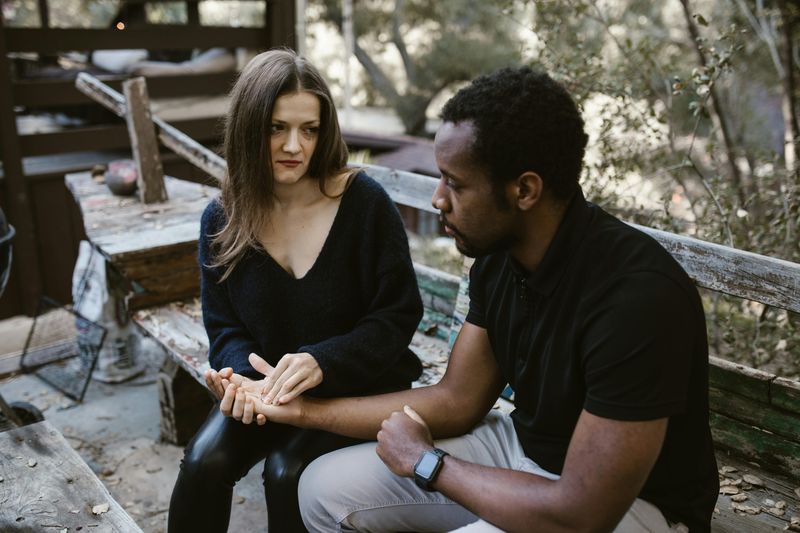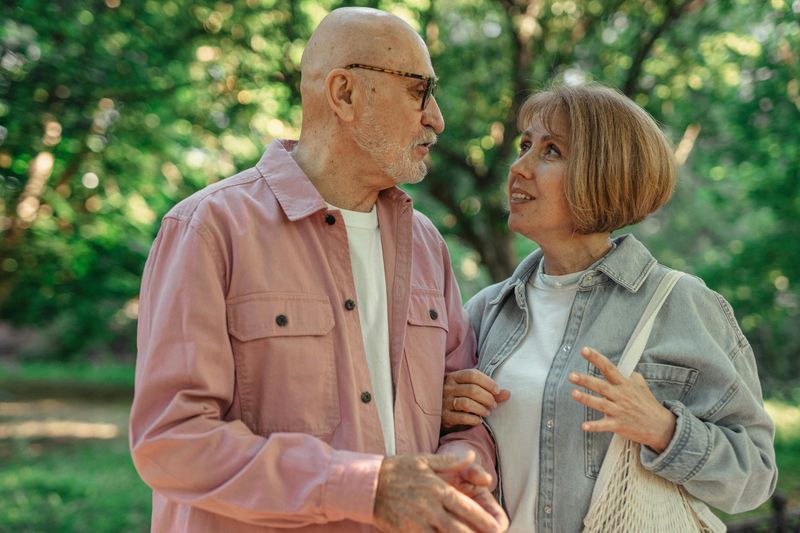12 Therapist-Approved Habits Confident Couples Rely On When Life Gets Hard

Every relationship faces storms, but some couples weather them better than others. The difference isn’t luck—it’s specific habits that create a foundation of trust and resilience. Therapists have identified key practices that help couples navigate life’s challenges while keeping their connection strong. These proven strategies help partners support each other when times get tough.
1. Give Each Other the Benefit of the Doubt

Misunderstandings happen in even the strongest relationships. Resilient couples pause before jumping to negative conclusions about their partner’s words or actions. They ask clarifying questions instead of making assumptions.
This habit creates a safety net where both people feel trusted rather than constantly defending themselves. When your partner seems distant, consider they might be tired rather than angry with you.
Over time, this practice builds a relationship where both people feel secure enough to be imperfect. The simple act of checking your assumptions before reacting can prevent countless unnecessary arguments.
2. Take Responsibility Without Shame

Confident couples face their mistakes head-on. Rather than getting defensive or wallowing in guilt, they acknowledge when they’ve messed up and focus on making things right.
The magic happens in the repair process—saying “I’m sorry I snapped at you earlier” and then changing the behavior shows true accountability. Partners learn they can trust each other to own their actions.
This habit creates a relationship where growth feels possible instead of threatening. When both people take responsibility without spiraling into shame, the relationship becomes stronger after conflicts rather than weaker.
3. Assume Good Intentions During Disagreements

“We’re on the same team” becomes the mantra of resilient partnerships. When disagreements arise, these couples view them as puzzles to solve together rather than battles to win.
Framing conflicts this way transforms how partners communicate. Instead of “Why are you trying to hurt me?” the question becomes “What are you trying to tell me that I’m missing?” This simple shift changes everything.
Even in heated moments, they remember their partner isn’t their enemy. This habit prevents the relationship-damaging pattern where partners become adversaries rather than allies when facing life’s inevitable challenges.
4. Make Repairs Quickly After Arguments

The strongest couples don’t avoid conflict—they excel at reconnecting afterward. Small gestures like a gentle touch, humor, or simply saying “I miss you” can break tension after disagreements.
Relationship experts note that how quickly couples repair after arguments matters more than how often they fight. These repair attempts act as emotional first aid, preventing wounds from festering into resentment.
Partners in resilient relationships recognize and accept these peace offerings. They understand that holding grudges hurts the relationship more than whatever sparked the argument in the first place.
5. Express Love Without Constant Reassurance

Love flows freely in confident relationships without constant demands for proof. Partners show affection spontaneously rather than keeping score or withholding until certain conditions are met.
This habit creates a climate of emotional abundance rather than scarcity. Small gestures—a thoughtful text, a favorite snack brought home, or simply saying “I love you” without expecting anything in return—happen naturally.
The security that comes from this pattern allows both people to focus on giving rather than taking. When partners don’t need to constantly validate the relationship’s existence, they can put their energy toward making it thrive instead.
6. Stay Curious Instead of Critical

Wonder works better than judgment when facing differences. Resilient couples approach disagreements with genuine questions rather than assumptions about their partner’s motives or character.
“Help me understand your perspective” opens doors that “That makes no sense” slams shut. This habit transforms potential arguments into opportunities for deeper connection. Partners discover new aspects of each other even after years together.
Curiosity creates space for both people to exist as complex individuals rather than characters in each other’s stories. When couples maintain this sense of discovery, the relationship stays fresh even through life’s most challenging chapters.
7. Set Clear Boundaries Without Guilt

Healthy limits create stronger connections, not weaker ones. Confident couples understand that clearly stating needs and boundaries shows respect for the relationship.
“I need some alone time tonight” or “I’m not comfortable with that” becomes statements of self-awareness rather than rejection. Partners learn to hear these boundaries without taking them personally.
This habit builds a relationship where both people feel free to be authentic. The paradox of good boundaries is that they actually create more closeness—when partners know they can say no without drama, they feel safer saying yes from a genuine place.
8. Choose Authenticity Over Perfection

Real intimacy thrives in the messy truth, not carefully curated perfection. Resilient couples share their genuine thoughts, fears, and dreams without filtering everything through a lens of “how will this make me look?”
This vulnerability creates the deep connection that sustains relationships through hard times. Partners who know each other’s real struggles can offer meaningful support rather than surface-level comfort.
The courage to be seen—flaws and all—builds unshakable trust. When both people know they won’t be rejected for their authentic selves, the relationship becomes a place of genuine safety rather than performance.
9. Practice Self-Compassion to Protect the Relationship

How we talk to ourselves eventually spills into how we treat our partners. Resilient couples recognize that harsh self-criticism creates a negative emotional environment that affects both people.
They actively work on speaking kindly to themselves when facing setbacks or mistakes. “I messed up, but I’m human” replaces “I’m such a failure” in their internal dialogue.
This habit creates a gentler atmosphere where both partners can grow without fear. When we stop being our own worst critics, we naturally become more patient and understanding with our partners’ imperfections too.
10. Name Emotions Instead of Blaming Each Other

Emotional literacy transforms relationship conflicts. Strong couples identify and express their feelings directly instead of turning them into accusations about their partner’s character.
“I feel worried when plans change last minute” works much better than “You’re so inconsiderate!” This habit creates conversations that lead to understanding rather than defensiveness. Partners learn to recognize emotions as information rather than attacks.
Using “I” statements helps couples navigate difficult feelings together. When both people take ownership of their emotional experiences, they can work as a team to address the underlying needs rather than getting stuck in blame cycles.
11. Celebrate Each Other’s Wins Enthusiastically

Sharing good news becomes a relationship-strengthening moment when met with genuine excitement. Strong couples don’t just offer a quick “that’s nice” when their partner succeeds—they stop, engage, and celebrate together.
Psychologists call this “active-constructive responding,” and it’s a powerful predictor of relationship satisfaction. “Tell me more!” and “I’m so proud of you” become regular phrases that create positive connection points.
This habit builds a reservoir of goodwill that helps during tough times. Partners who feel their joys are genuinely celebrated are more likely to share their struggles too, knowing they’ll receive the same attentive response.
12. Notice and Appreciate Small Efforts Daily

Gratitude turns ordinary moments into relationship gold. Resilient couples develop the habit of acknowledging the small things their partner does rather than taking them for granted.
“Thanks for making coffee this morning” or “I noticed you took out the trash” might seem trivial, but these small appreciations prevent the erosion of goodwill that happens when efforts go unrecognized. This practice creates a culture of appreciation rather than expectation.
The habit of noticing positive actions counteracts our brain’s natural negativity bias. When both partners actively look for things to appreciate, they create a relationship that feels supportive rather than depleting.

Comments
Loading…